



No tours available yet...
No tours available yet...
No tours available yet...
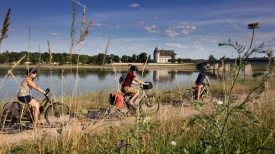 France Bike Tours
France Bike Tours 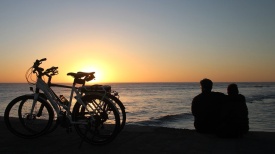 Europe Bike Tours
Europe Bike Tours 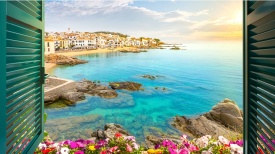 Europe Luxury Bike Tours
Europe Luxury Bike Tours 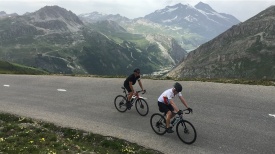 Epic Cycling
Epic Cycling 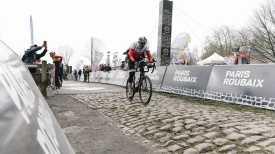 Cycling Challenges
Cycling Challenges 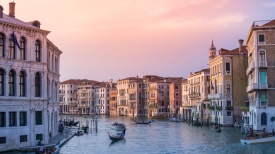 Italy
Italy 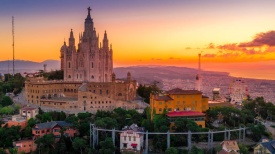 Spain
Spain 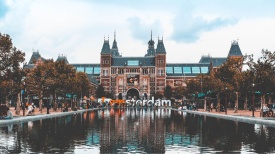 Holland
Holland 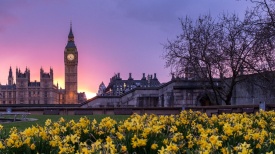 United Kingdom
United Kingdom 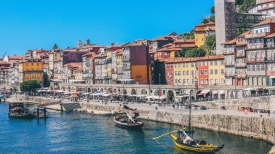 Portugal
Portugal 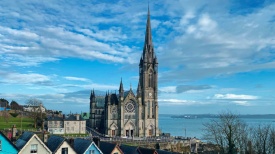 Ireland
Ireland 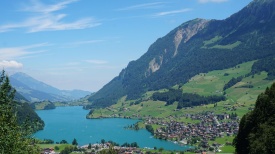 Switzerland
Switzerland 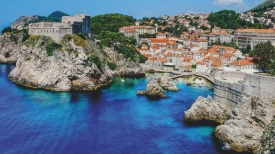 Croatia
Croatia 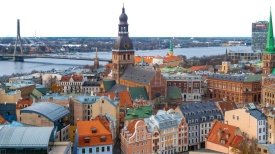 Baltic States
Baltic States 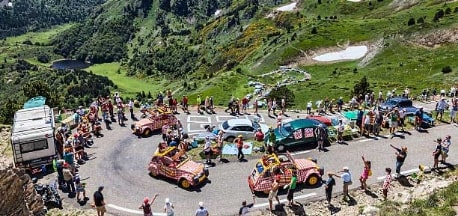




Tour de France
2025 Tickets

Tour de France
2025 Packages
Adventure Vacations
for Couples
European Tours
for Seniors
European Tours
for Families
Group Tours to
Europe
Honeymoon
Europe Tour
Singles Tours
Europe
Italy
Spain
Holland
United Kingdom
Portugal
Ireland
Switzerland
Croatia
Baltic States
France Bike Tours
Europe Bike Tours
Europe Luxury Bike Tours
Epic Cycling
Cycling Challenges
Self-Guided Tours
Wine Tours

Heritage Tours

Adventure Cycling
Food and Culinary Tours
Walking and Hiking Tours
Multi Sport Tours

Private Guided Tours

Custom Tours
Italy
Spain
Holland
United Kingdom
Portugal
Ireland
Switzerland
Croatia
Provence
Loire Valley
Bordeaux
Brittany
Burgundy
Dordogne
Alsace
Massif Central
Italy
Spain
Portugal
Provence
Loire Valley
Bordeaux
Dordogne
Burgundy
Brittany
Alsace
Burgundy
Alsace
Bordeaux
Bordeaux
Burgundy
Alsace
Provence
Loire Valley
Languedoc
Portugal
Provence
Alsace
Dordogne
Loire Valley
Brittany
Burgundy
Normandy
Corsica
Provence
Normandy
Dordogne
Loire Valley
Burgundy
Alsace
Brittany
Corsica
Loire Valley
Provence
Bordeaux
Languedoc
Dordogne
Burgundy
Brittany
Guadeloupe
Loire Valley
Dordogne
Brittany
Provence
French Riviera
Spain
Normandy
Corsica
Atlantic Coast
Loire Valley
Dordogne
Brittany
Provence
French Riviera
Spain
Normandy
Corsica
Atlantic Coast
Provence
Loire Valley
Languedoc
Dordogne
Provence
Loire Valley
Languedoc
Dordogne
Other conditions Surface conditions – road/trails; all assumed to be in good condition; no technical experience is needed and not an added difficulty factor.
More challenging options : Ask us to design you a custom tour or simply take our maps and add miles to your route. Feel free to improvise, but know your limits and know what the symbols on the maps mean!
Weather: heat, rain, and wind will all have an effect on your ride/walk and extremes of each will make it more difficult. Load: carrying excessive weight obviously makes more work for you. We always transfer luggage, so this refers only to what you take in a day pack or in panniers.
Dress: layering, using appropriate and lightweight clothing, protection from the sun, and good footwear make it easier for you.
Equipment: primarily relates to bikes; but knowing how to shift, when to shift, and maintain your bike will make it easier for you as well. How long will it take to cover the rides/walks/hikes at these levels? There is no specific answer because everyone travels at his or her own speed. However, when we indicate a time, such as in the hikes, we generalize with an average of 5 km/hour on flat surfaces and 3.5 km/hr on grade. In the bike rides, we generalize an average of 13-18 km/h on flat surfaces and 10-13 km/h on grade. Those times do include bathroom breaks, but not time for lunch and visits. Everyone should allow time to stop and explore, visit sites, and check directions.
If you can ride a bike at 20 mph; you cannot take a trip and expect to finish a ride in 2 hours. First, you need to allow time to check directions as you go, and then stop to visit. No less than 4 hours should be allowed to do any of the hikes and rides we have in our programs on any day. Longer days will last as much as 8 hours with stops and visits included.
Star tours – aka loop trips! These are days where you return to the same hotel where you start the day. This means that people who are less strong can do shorter days than stronger persons. It also allows a day off, non-active participants to come along, and is a great way for families and groups of varying abilities/interests to do the same trip together. These tours offer everything from easy to challenging rides, (Levels 1 – 3) but are usually rated as easy because it accommodate easy.
All our Tours : We provide, at the orientation, a road-book with cue sheet (step by step itinerary), detailled maps and regional information.
Cycling & Multisport tours, you will find plenty of road signs and indications to keep you on course and roads are easily identified on maps included with the road-book.
On Hiking tours, it is more important to know how to orient with a map as you will have fewer sign postings to rely upon. Hiking tours mostly follow GR routes which are marked trails, sometimes paved, but nonetheless otherwise in remote areas. We provide more detailled maps for hiking Tours and
What else? You should be an independent person, capable of reading a map, interpreting directions, and taking charge of your planning. We are here to help you, but in the end, you will be the one out there on the road/trail and the more prepared you are mentally as well as physically, the more fun and better memories you will have! Use this tour as an excuse to increase your conditioning and fitness and take some time to read everything we send to you as well as do your own research. Preparation is part of the fun in travel – don’t let it go unattended! Within this site you can discover more than just our tours, but also information about the regions of France, and information about traveling in France. Most important though for anyone visiting our site and considering a vacation in France is that you can call us! Let our service and knowledge set us apart! This website isn’t to help us avoid speaking to clients, but to facilitate your planning process, and hopefully get you the information you need right away. If you have a question though, Please contact us if you have any questions about our services.
At Discover France, we own our own bikes! We employ professonal mechanics to look after all rental bikes as well as our regular professional service to the local customers.
You are responsible for the bikes. Bikes are delivered to each participant based on height. They are sized as close as possible but they remain rentals and may take some minor adjustments. The quality is top notch for rentals. Our mechanics review every bike after each rental to prepare for the next use. WHILE ON TOUR: remember that YOU must know how to fix a flat. We give you the tools, but we are not on call to fix that. We will resolve any other mechanical issues if they should arise.
Discover France Adventures is proud to be a leader in providing complete and even ‘advance’ technology on our self guided and custom guided tours that allow our clients to use the best equipment possible. We invested in GPS units a few years back and have some simple to use, easy to read, yet sophisticated devices available on nearly all of our tours. (Pictured: hybrid bike with GPS and mount, bike computer, handlebar bag with plastic map holder and inside cover of a sample route book.)
Our route books or ‘road books’ (same thing) are complete packages of information that will help you to guide yourself through the itinerary that we have planned and laid out for you our travelers. Anyone can produce a route book, in general, but we have invested significant time and incorporated the feedback of our customers over many years to make our road books even better. It is always a work in progress as roads change, sites change, and we find even better routes between 2 points. We work on them every winter to prepare for the upcoming season. Our road books include: color coded information, color maps, highlighted routes, orientation points, and easy to follow directions. We try to give you enough information to interpret the route without giving you too much information that makes you read all the time and not enjoy the ride! It is a delicate balance!
Road books are a tool, one that every traveler will use and interpret differently. 2 people do not always see the same thing on a map, and so some people will not interpret the directions the same way. We know this and its why we have created the system we have. Combining the GPS with road book really gives you all the tools and a fail safe way to make your way along a tour route without stress and all the time available to take in the gorgeous countryside, rich culture, and historic sites!
Tour Support? Yes, even on a self guided tour we are behind the scenes working and we are available to you if you need help. We refer to this in our tour pages as ’emergency support’ but we don’t treat many emergencies. In our 2 offices in the Loire Valley and in the South of France we are on standby via phone for all of our travelers no matter where they are in France. Our offices are bilingual French/English and we have some Spanish, Russian, and Italian speakers as well. This support service is available during daylight hours when our clients are out on the routes. We help customers arrange alternative transfers if weather is bad or someone is sick and can’t participate in the day’s activity. We can iron out any problem with hotels you may encounter when you arrive. We help if a bike problem should arise, and we help with additional services you may need during your trip.
Our travelers are never completely alone, even if you don’t see us. The beautiful part of a self guided trip is doing the activity yourself and those close to you; doing it when you want, how you want, but not having to do all the work to make it happen. You get expertly designed routes, support, and service. A self guided trip is the best deal going as far as were concerned, and with all the above info we think you will agree!
Part of our included services for tour clients booking trips with us is a variety of travel documents that we send prior to travel. This includes a lot of information relevant to each cycling or multisport tour such as sites in the particular region, and the points of interest. We include suggested dining spots, and any specialties of a region. We also help our customers book trains, added hotel stays, car rentals, and any other ground service in France. Below are some general travel tips we believe useful for any one traveling to France.
France Time zone France is 1 hour ahead of Greenwich Mean Time (G.M.T. +1). This makes it 6 hours ahead of U.S. Eastern Standard Time (E.S.T. +6, and +9 PST). The time is the same all over the country.
The country is divided in 95 departments, each has its name and its number and this number is set by alphabetical order. That number is found at the beginning of each zip code of the department as well as the last 2 digits of the car plates.
Documentation U.S citizens only need a valid passport to travel to France as long as their stay does not exceed 3 months. You are required to carry identification with you at all times when traveling in France. If you lose your passport, contact:
American Consulate
2, rue Saint Florentin – 75001 Paris
Tel: 01.42.96.12.02 or 01.42.61.80.75
Consular Section for Canadians
35, Avenue de Montaigne – 75008 Paris
Tel: 01.44.43.32.00
Post Office – Mail / Shipping
The Post Office is called LA POSTE or PTT. Generally open M-F from 9am to 6pm and Saturday from 9am to 12pm.
Telephone
France is divided by 5 zones for the telephone. The 2 first digits of a phone number tells you the area: 01 is Paris / 02 northwest / 03 northeast / 04 southeast / 05 southwest.
From the States, you don’t need to dial the 0. But once in France, you have to dial the 0. Phone numbers must have 10 digits (including the first 0), no exception, except of course the emergency numbers. Public phones in France require a telephone card, or they can often work also with a credit card. Check for the signs Visa, Master Card, etc.
24 hour ambulance (called SAMU): 15
Police: 17
Fire: 18
Other telephone numbers in Paris:
24 hour doctor: 01.47.07.77.77
24 hour dentist: 01.43.37.51.00
English language crisis line: 01.47.23.80.80
Banks are generally open weekdays 9am – 4:30pm. In many cities outside Paris banks close for lunch, sometimes for 2 hours. Most banks are closed Saturday and Sunday and all holidays. The main banks are: BNP / Credit Agricole / Societe Generale / Caisse d’Epargne / Credit du Nord, etc.
Document / Insurance / Law
Car rental
The legal age to rent a car is 21, but most companies require being 25 years old.
See our links page for companies, and insurance options.
Gas
Taxes on gas are very high in France, which explains the price of the liter:
On the petrol pump Sans Plomb means unleaded petrol. Gas stations along highways are open 24 h / 7 days. French usually get gas at large stores like Carrefour, Leclerc, Casino, etc. You can go at any time, help yourself and use your credit card.
Types of roads
Interstate toll way / Motorway = A + the number of the road / 130km/h is the speed limit. This is also a toll road, you can pay tolls with a credit card; this is the fast way to travel, but is not cheap! Every 20 km you have restaurants, gas station, sometimes shops, restrooms. National road = N + number of the road / 90km/h. If you are not traveling too far or if you have plenty of time, then the more scenic and free way to go is on the National roads. A famous road in France is the National 7 / N7. There is even a song about that road sung by Charles Trenet! Department road = D + number of the road / 50km/h. Great for seeing the back country of France; very slow going.
There are many convenient locations within Paris:
More detailed travel information is available at the French Governement Tourist Office Website at www.franceguide.com
We suggest that people either buy in advance or in country! What other choice is there? The way to think about it is like this:
If you have a very popular route on the TGV; we recommend advance purchases. Usually TGV tickets with specific seats cannot be purchased more than 60 days in advance. A TGV ticket is almost pointless without the actual seat. They are 2 different things! A ticket between Paris and Avignon, for example, might be valid on any train in a certain time frame, but doesn’t entitle you to a seat on any train. You have to also buy a seat reservation.
We recommend advance tickets with seats for the city pairs:
Rail Passes: usually a good deal when you travel on the TGV at least 3 times, but often still a good deal if you even use it only 2 times. See the France Rail Pass at Rail Europe. A new pass/ticket option being offered by Rail Europe is the Anywhere Anytime France program of E-tickets. This also looks to be a very useful option, depending your travel plans.
Buying in country, or if you are very confident, then buy online direct from SNCF, the French national railroad: www.voyages-sncf.com They have English language available, but you may have to go through the French language only site to make certain purchases. If a rail pass isn’t the best deal for you , then perhaps you can get a ‘PREMS’ deal on SNCF directly.
Other tickets: TER and regional trains for 1 way or simple/short round trips. We believe it is almost always best to buy them through SNCF, usually by walking into any station or at a kiosk when in France. Unless you travel with a rail pass, then your pass is good on these trains too. But, we don’t recommend buying point to point tickets on regional trains through Rail Europe. Shipping fees and even seat assignments add up to too much. NOTE: Regional trains do not require seat reservations, so don’t pay for them. Just sit in any open seat in your ticket class of service.
First of Second Class? Look at the prices! Sometimes there is little difference. On the train, there are no added privileges like larger seats or massages , etc in 1st class. What you usually have is a wagon that tends to be a bit quieter with business travelers or adults without children.
US HQ
55 East 59th Street, 9th floor
New York, NY 10022, United States
(1) 800-929-0152
FRANCE HQ
427 Rue Hélène Boucher, Espace Commercial Fréjorgues Ouest, Mauguio 34130, France
+33 (0)4 67 15 82 04
© 2024 Discover France. All rights reserved
Legal notice
